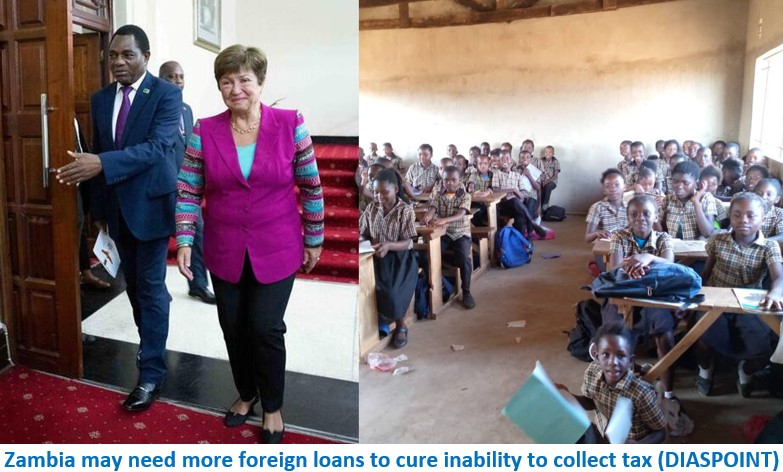Zambia’s debt crisis is affecting its ability to collect tax
Post By Diaspoint | May 1, 2023

Zambia’s debt contraction has not increased growth and growing debt servicing costs have weakened the economy and in turn stifled tax revenue collection. This has left the country in a vicious cycle where it needs to borrow to finance economic development.
Zambia was the first country to default on sovereign debt during the pandemic. It is now the test case for addressing developing country debt in a post-COVID-19 world. This is happening in a shifting landscape for low-income countries (LICs) debt that looks very different from the debt crises of the 1980s and early 2000s that many developing countries got caught up in. Three main things have emerged from this evolving landscape. First, there are flaws in the international sovereign debt system for developing countries as there is no clear system for countries to follow. Second, the type of debt held by LICs like Zambia has changed, shifting from concessionary bilateral debt to commercial debt such as Eurobonds. Finally, the rise of China as a major player in the LIC debt market is probably the biggest and most significant change. Consequently, the process of debt restructuring for Zambia is proving long, painful, and protracted.
There is often a temptation to focus on symptoms and not causes when addressing development challenges, especially for challenges like unsustainable debt which stem from a variety of causes. We explore one of the reasons why countries like Zambia repeatedly find themselves in debt – a limited ability to collect tax.
Read More from original source
